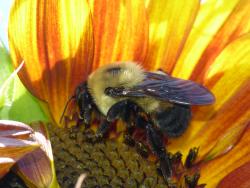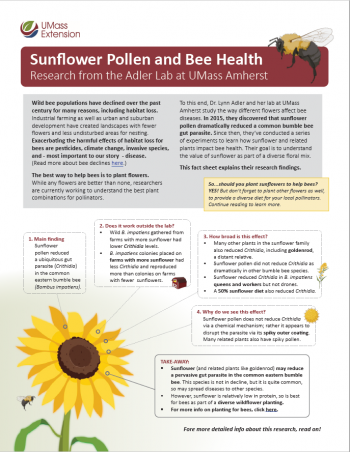Sunflower Pollen and Bee Health
Sunflower Pollen and Bee Health: Research from the Adler Lab at UMass Amherst
Wild bee populations have declined over the past century for many reasons, including habitat loss. Industrial farming as well as urban and suburban development have created landscapes with fewer flowers and less undisturbed areas for nesting. Exacerbating the harmful effects of habitat loss for bees are pesticides, climate change, invasive species, and - most important to our story - disease. (Read more about bee declines in the February 2022 issue of Veg Notes.)
The best way to help bees is to plant flowers. While any flowers are better than none, researchers are currently working to understand the best plant combinations for pollinators.
To this end, Dr. Lynn Adler and her lab at UMass Amherst study the way different flowers affect bee diseases. In 2015, they discovered that sunflower pollen dramatically reduced a common bumble bee gut parasite. Since then, they’ve conducted a series of experiments to learn how sunflower and related plants impact bee health. Their goal is to understand the value of sunflower as part of a diverse floral mix.
Read this ![]() fact sheet to learn what they found!
fact sheet to learn what they found!


